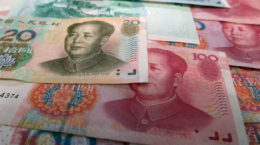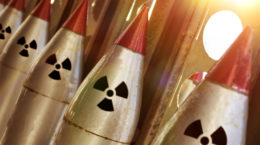Belarusian economy is totally and completely bind to one and only trading and business partner – Russia. While this situation prevails, our country will not be able to achieve real freedom and independence.
Belarusian economy has so many troubles that it is difficult to name the most important one. However, if we try to do so, it will not be the administrative-command system preserved in Belarus since Soviet times, nor even the lion’s share of state-owned industrial assets. The major and most significant problem will be the total dependence of the Belarusian economy on Russia.
Russia is the main trading and economic partner of Belarus, and its share in the commodity turnover of our country with all the countries of the world is noticeably exceeding 60%. To compare: in 2021, the share of Russia in the Belarusian trade constituted 48.6%. The amount of mutual trade was over $40 billion.
For decades, since his coming into power, Aliaksandr Lukashenka was using the discourse of multivectorness and threats to make a rapprochement with the West to exhort pressure on Moscow, milking it for new credits and discounts, keeping the Russian market open for Belarusian goods and receiving energy source materials at ridiculously low prices.
As a result, the chief of Belarus mastered his skill to manipulate the Kremlin to perfection. He used the position of our country between Russia and the West to the utmost. “If you do not reduce the prices for gas, tomorrow NATO tanks will be invested to Belarus”, approximately this way Minsk was bargaining with Moscow, flirting with Brussels and Washington at the same time. The result: lots of preferences from Russia, the biggest part of which Belarus received not with real money, but in the form of discounts for oil and gas, and due to absence of oil export duties.
It might have been possible to put up with that, if the revenues from all of the above were spent on reforming the Belarusian economy, modernizing infrastructure, and developing our own competitive industries. Nevertheless, precisely the opposite has happened: Lukashenka has been spending all the received money on strengthening his own power and on conservation of quasi-soviet model of the economy with industrial technologies at the level of the 1980s.
In 2018, the Kremlin announced that there would be no free ride any longer: the economic support would have to be paid by pieces of the Belarusian sovereignty. The cruel suppression of the people’s protests in 2020 closed the possibility to have a dialogue with the Western partners for Lukashenka and his team. Conducting business with the West turned out to be hampered, so the Belarusian dictator had to invent more and more devious constructions to obtain help from Russia. It’s important to remember, for example, the suggestions to leave to Minsk the previously granted, but not entirely utilized, credit line for the construction of the nuclear power plant (and to postpone the loan payments), to grant a loan for the purchase of Russian weapons or to build (for credit money, of course) a Belarusian marine terminal in the north of Russia.
Russia did not actually need at all such a “freeloader” as the official Minsk, but preparation for the Russian invasion of Ukraine was already going on. It means, free access to the territory of Belarus was crucially important, and the Kremlin was ready to pay for it. From August, 2020, till February 24, 2022, Russia approved a loan for Belarus in the amount of $1.5 billion, low prices for gas, as well as deferral of debt payments.
Unexpectedly for the Kremlin, the war dragged on, and the situation is turning into an obvious defeat of Russia, there’s an acute lack of funds in the Russian budget, but the Kremlin also cannot afford to give up on Belarus in these new conditions. In the result, in the last year, Moscow limited help provided to the official Minsk, yet at the same time, it took measures to tie the Belarusian economy to the Russian one even with much stronger bonds.
Frankly speaking, not much effort was really needed to do that: in response to the support of Russian aggression, the West itself toughened and expanded sanctions against Belarus. Consequently, they affected about 70% of the Belarusian export to the European Union countries, which constituted almost 17% of the total volume of export. Another 5% of export turned out to be blocked after Lithuania had banned the transit of the Belarusian potassium through its ports. At the same time, Russia was not able to ensure transit of the Belarusian potassium to China: The Trans-Siberian railway is overloaded, the ports are occupied with other cargo, and Moscow is not in a hurry to give Lukashenka a separate port as a gift.
During the war, Lukashenka has made more than one hint to the Kremlin, that he is counting on compensation of economic losses endured due to his support of the aggression and provision of the Belarusian territory to the Russian troops. Yet, Moscow understands it perfectly that Mr. Lukashenka has nowhere else to go. The Ukrainian market, previously so profitable, has closed for Belarus utterly and completely, the trade with the European Union has collapsed, and the CIS market does not allow good earnings. So, here’s the result: while the share of the Russian Federation in the Belarusian trade in the year 2021 constituted 49%, it grew up to nearly 70% as of the beginning of the year 2023.
Not only there is little good in such a strong dependency, also the structure of that growth arises a huge number of questions. Formally, by the results of the last year, imports of the Belarusian enterprises to the Russian market increased 1.4 times. However, as statistical data is not available, it’s difficult to say whether that increase happened due to the growth of physical export volumes, or because of the growth of prices. Analytics of the Eurasian Development Bank favor the second option: they point out devaluation of the Belarusian ruble in relation to the Russian one and note reduction in physical export volumes.
The Kremlin sees the heightened economic dependency of Belarus from Russia, and therefore it is not in a hurry to provide additional help to our country: it needs money for itself. For now, Lukashenka has managed only to get deferred payments on old debts for the sum of $1.4 billion. The payment deadline shifted from April, 2023, to the period from 2028 till 2033. However, this is a behavior of an alcoholic, who is drinking away all the money he gets, each time postponing payment of debts for “at some point in the future”.
All those issues are just the most obvious. Let’s give a closer look on what else is exacerbating the dependency of Belarus on Russia.
In the last year, the Belarusian regime stopped delaying integration with Russia on a whole number of directions. It’s not that the processes have sped up suddenly, but, for example, an agreement of general principles of taxation of indirect taxes was signed in October, demanding to introduce changes into the Tax Code of the Republic of Belarus and is fraught with huge risks for Minsk. On the other hand, now both the Belarusian refineries will be able to benefit from the reverse excise on oil, which will compensate the losses from the tax maneuver of the Russian Federation. In other words, they are getting access to subsidies from the Russian budget. That is going to enhance the overall industry and lead to the increase in export revenue, but, on the other hand, will also tighten the nod bonding the Belarusian economy with the Russian one. Exactly in this case it will be extremely difficult to “untighten” it.
Besides that, the “taxation” agreement provides for introduction of a unified system of indirect tax administration in 2023. This will not just increase transparency of fiscal procedures, but will give Moscow access to all the information about Belarusian legal entities (as absolute majority of them are VAT tax payers). Definitely, such a transparency is cutting the economic sovereignty of Minsk.
Once again about energy source materials: due to new agreements, Belarusian refineries are buying oil from Russia not at market prices, but with great discounts. The amount of the discount is kept secret, but everything indicates that Belarus has got the discount similar to those received by India and China. As for deliveries of natural gas, the prices for Belarus have remained constant, at the pre-war level, and trade has been decoupled from the dollar in favor of the Russian ruble. However, there are doubts that due to that prices have become more profitable for Belarus if we take into consideration the strengthening of the Russian ruble in relation to the Belarusian one.
Yet again: today we can be happy about cheap Russian energy source materials, and forget to improve at least in some way the hugely excessive energy consumption of the Belarusian industry and housing and public utilities. Then, some time later, when Russia is defeated at the war, Belarus will lose cheap energy supplies and will have to buy oil and gas at market prices. It is then, when we’ll find out that our energy losses are so high that we cannot even speak about profitability and competitiveness of the Belarusian industry in principle.
Also, finally, some little things: let’s remember those mysterious “import substitution projects”. We’ll remind that Russia has provided a loan to Belarus for 12 such projects in the amount of almost $1.7 billion. In addition, initially it was assumed, that the money would be allocated in the form of grants, that is, without the obligation to pay it back, but it turned out (surprise-surprise!!!) those were not grants, but loans. Besides that, the obtained sum is very far from the amount of the losses Belarus has endured due to sanctions, which the Prime Minister Halouchanka estimates at $16-18 billion.
Also, the joke is that the Belarusian industry will use that money to produce components for Russian arms and military equipment! Therefore, in other words, all that story is not about the development of the Belarusian science and industry, but about providing service to the Russian military-industrial complex. And for that, in the modern world, our country is going to “catch it in the neck”.
The military drama in the Eastern Europe is moving towards its conclusion with a knowingly sad ending for the aggressor country, Russia. Nevertheless, the regime of Belarus continues to look in the direction of the Kremlin when searching for answers to the growing problems. For now, cooperation with Moscow allows Minsk to soften economic hardships. However, as the dependency from Russia is growing and, most probably, has crossed the critical line long ago, it’s becoming more and more frightening to think what will happen with the economy of Belarus after the collapse of the Russian Federation. We just cannot save up enough humanitarian aid…
Our House








